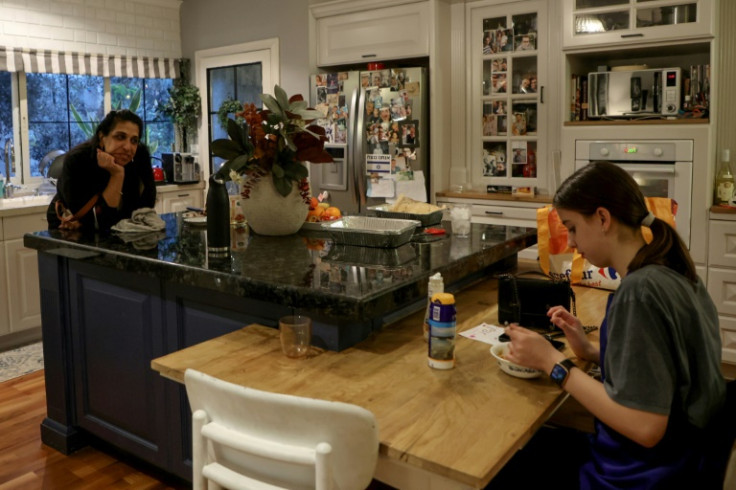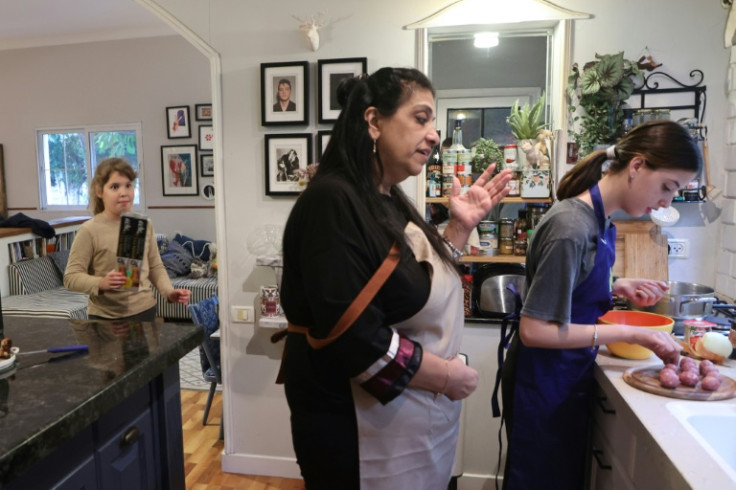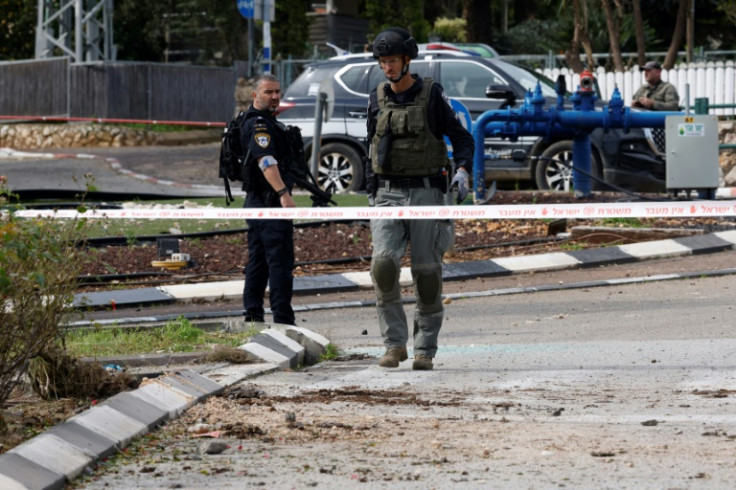
After weeks of living in hotel rooms, Sigal Chayak from northern Israel broke into tears the first time she got to cook her family a meal again.
"My life is the kitchen," said Chayak, 55.
Without it, the ordeal of leaving her home -- along with the tens of thousands evacuated from the border area with Lebanon -- has been all the more difficult.
As soon as she finally had access to a kitchen, she immediately set to cooking her late mother's soup.
The border region has seen near daily exchanges of fire between Israeli forces and Lebanon's Hezbollah movement since October 7 when Hamas militants from Gaza attacked southern Israel, triggering war.
Chayak, a mother of six, was evacuated in October from their home in Hosen near the Lebanese border. Her husband has remained in the north, serving in a rapid response security unit.
After a brief stay at a hotel in Tiberias, on the western shore of the Sea of Galilee, they have lived for more than two months in Tel Aviv hotel rooms.
Through an initiative launched by the Tel Aviv-based Asif Culinary Institute of Israel, she has had the chance to taste a semblance of normality through the vital act of cooking for her family.
"Food is comforting," she said. "And afterwards to see the kids and my husband eat the food is immense satisfaction."
Asif has paired more than 40 displaced Israelis with host kitchens around Tel Aviv in the past two months, said the organisation's chief operating officer Shay Li Hearsch.
It's one of several initiatives the non-profit institute has undertaken since Israel's war with Hamas began -- from cooking for reservists to culinary workshops.
Hearsch said the matchups give people "who are in a hotel room without a kitchen, and whose hands are yearning to touch food" a chance "to feel a home away from home".
The project has had the ancillary effect of bringing together Israelis from opposite sides of the country's increasingly polarised political landscape.
Before the outbreak of war, Israel was gripped by nationwide demonstrations against Prime Minister Benjamin Netanyahu's government and its planned overhaul of the country's judicial system.
Chayak's hometown voted overwhelmingly for Netanyahu's coalition, which includes religious and ultra-nationalist parties, in the 2022 election while liberal Tel Aviv has been the epicentre of anti-government protests.
"It's the most heartwarming thing right now that we have the possibility to create connections through food," Hearsch said. "That's our mission."
The initiative placed Chayak and her daughter Shani, 15, at the home of Yoav Rish, a wedding dress designer who lives with his husband and two daughters in central Tel Aviv.
Chayak had returned to his kitchen for a second time.
Rish said he heard about the project on Facebook and was excited to open his kitchen to a displaced family and give them "a real taste of Tel Aviv".
"It spoke to me," said Rish, who cooks almost daily for his family. "I thought about myself and what would happen to me in such a situation."
Chayak and her daughter roasted salmon fillets, baked a chocolate cake, and made her late Kurdish mother's recipe for meatballs and peas.
Shani said the first things she will do when she returns home -- whenever that may be -- are shower, sleep in her own bed, "and then, at night, cook when it's quiet and all my siblings are asleep."










